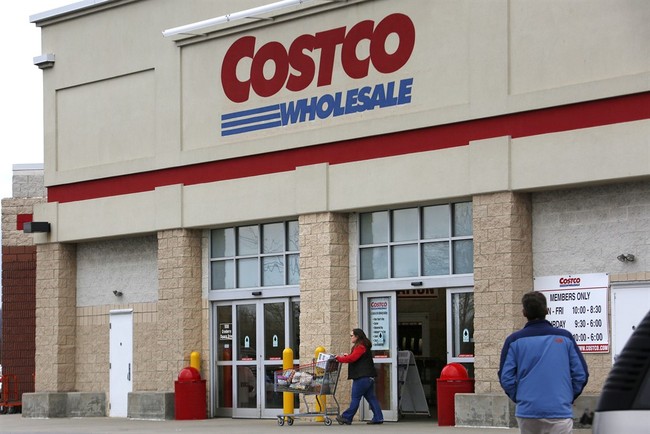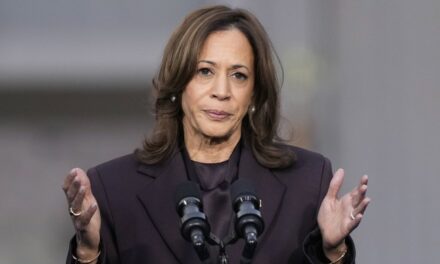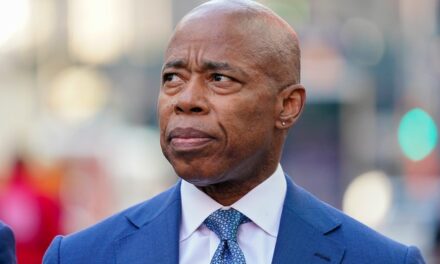We support our Publishers and Content Creators. You can view this story on their website by CLICKING HERE.

In the interest of full disclosure, I want to say that Mrs. Brown and I have been Costco members for several years. I hate Costco trips for a variety of reasons, not the least of which is the crush of humanity that ebbs and flows around the aisles with all of the tranquility of whitewater rapids during a flash flood. And it’s cold.
Advertisement
There is a tradition in my family that as we pull into the Costco parking lot, I play “The Song of the Volga Boatmen.” Somehow, it seems the appropriate soundtrack for pushing a shopping cart with 180 lightbulbs, six gallons of vegetable oil, and a lifetime supply of bacon around a warehouse. But maybe that’s just my problem. I am sure there are plenty of people out there who have perfectly lovely Costco experiences.
The news broke over the weekend that the Costco board of directors is asking shareholders to continue to embrace DEI practices despite a call to end them on the basis that they are discriminatory against Asians, whites, males, and straight people. The rationale is that the practices raise the risk of lawsuits. The further assertion is that even if only a handful of the potential lawsuits were successful, the retail giant could be liable for “tens of billions of dollars.” The Costco board, however, is urging shareholders to vote against dumping DEI:
In a statement to its investors, @costco‘s board of directors recommended that its shareholders not vote for the end of its large DEI program.
Costco’s support of DEI comes in contrast to several large retailers ending its discriminatory DEI programs, or rebranding them as… pic.twitter.com/aLRBLFCCKu
— Andy Ngo 🏳️🌈 (@MrAndyNgo) December 28, 2024
Fox Business notes that the National Center for Public Policy Research brought the proposal for a vote. The group cites the Supreme Court’s ruling in SFFA v. Harvard, which found that race-based college admissions violated the 14th Amendment. The proposal adds that 13 states have warned Fortune 100 companies that the ruling could set them up for lawsuits.
Advertisement
In the wake of the backlashes over Bud Light and Target, other companies have been rolling back DEI policies and quietly dismantling the infrastructure that supports the practice. In the proposal, the National Center for Public Policy Research commented, “And yet Costco still has such a program, though it was apprehensive enough to recognize this as it recently and quietly rebranded its DEI program to ‘People and Communities.’ But sticking a new label on discriminatory practices does not protect Costco and its shareholders from these risks.”
The Post Millennial reported that in its appeal to shareholders, in addition to what you can read in X post above, Costco stated in part:
The proponent professes concern about legal and financial risks to the company and its shareholders associated with the diversity initiatives. The supporting statement demonstrates that it is the proponent and others that are responsible for inflicting burdens on companies with their challenges to longstanding diversity programs. The proponent’s broader agenda is not reducing risk for the company but abolition of diversity initiatives.
Ethan Peck, deputy director for the National Center for Public Policy Research’s Free Enterprise Project, told Fox:
DEI is the redistribution of opportunity – for employees, potential employees, and suppliers — on the basis of race and sex. That’s not only immoral, it’s illegal, and runs the risks of future litigation. It also comes with sacrificing merit – and therefore excellence and innovation (which the company has a fiduciary duty to shareholders to maximize to the best of its ability) – at the altar of arbitrarily determined diversity.
Advertisement
So why is Costco staying the course when other companies have seen the light? It’s likely because it thinks it can. After all, there are only a few other outlets where a stricken public can panic-shop when the bird flu pandemic lays us all low. You have to hoard your toilet paper from some store, right? Costco may think it is too big to fail. Of course, so did InBev. On the other hand, the company may believe it has some protection since, according to Investopedia:
- The top individual Costco shareholders are Craig Jelinek, Patrick Callans, and Richard Galanti.
- Costco’s top institutional shareholders are Vanguard Group, BlackRock, and State Street Corp.
Jelinek is the former CEO of Costco who moved to an advisory role from January to the spring of 2024. Callans is the company’s senior vice president of administration. Galanti has been a director since 1995 and is a former CFO for Costco. He will retire as director and vice president in 2025. Our other three bachelors need no introduction, although it is worth noting that Investopedia reported that BlackRock owns 33.19 million company shares, Vanguard owns 41.37 million, and State Street has 18.63 million shares.
While ownership may give Costco a certain level of immunity, the company may be banking on the notion that most people will not notice or care if it hangs on to DEI. Bud Light, Target, and John Deere felt the heat because much of their core buyer demographics were already philosophically opposed to DEI. Dylan Mulvaney didn’t help much, either. Costco may be rolling the dice that its customer base is diverse enough and may be too enamored of buying in bulk to care and will happily keep paying for the privilege of shopping there. And it may be right.
Advertisement

 Conservative
Conservative  Search
Search Trending
Trending Current News
Current News 







